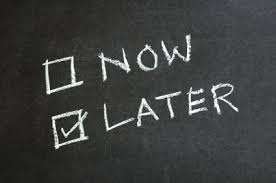
Sunday, January 6th. 9:13 AM.
I stare at my computer monitor. A blank sheet of paper stares back, untouched by words.
A research paper. Requiring eight sources cited with a minimum of 1,500 and a maximum of 2,500 words.
I tell myself that I’m going to finish it today. Who knows when I’d be able to make myself sit back down and work on it later?
I swallow and begin typing. It’s 9:34 now. Straining myself, I finish typing the last word of the title. 11 words. This is going to take a while.
10:50 AM.
277 words. I have 4 tabs open that are unrelated to the assignment. I’m not worried though. After all, the day is still young, isn’t it?
11:16 AM.
277 words. I found a cool new YouTube channel. This guy’s making videos about various stories he has to tell from his high school years. They’re pretty engaging. I should really get back to work.
11:45 AM.
346 words. I’ve more or less paraphrased the entire first half of one of my sources. That’s definitely how writing essays works. The teacher probably won’t notice.
12:20 PM.
381 words. Time for a lunch break! I heat up a few slices of leftover pizza from two nights ago. The pepperoni slices are still a little cold. Otherwise, it’s alright.
1:08 PM.
381 words. That lunch break took a little longer than I though. I sit back down in the swiveling chair in front of the computer. I can’t work on an empty stomach, can I?
1:40 PM.
473 words. I have come to the conclusion that research papers are incredibly boring. How any one person can spend hours grading these is beyond me.
2:33 PM.
604 words. I found a website with lots of games available that I used to play when I was younger. A quick trip down memory lane ought to be alright.
3:28 PM.
604 words. Did I really just spend an hour playing that? It wasn’t even that fun, now that I think about it. Still, it was pleasing for my nostalgia.
4:15 PM.
698 words. Almost halfway there; I decided a while ago that I wouldn’t be getting far beyond 1,500 words. I really need to figure out how to focus better… I think I’ll Google how to avoid procrastinating. That ought to work.
4:52 PM.
760 words. I’m finally starting to feel a little anxious about finishing this research paper. But, nothing for it but to keep chipping away, I guess.
5:10 PM.
802 words. I wonder if I can use a Wii Remote as a controller on my computer… seems logical to me.
6:29 PM.
802 words. The Wii Remote doesn’t work at all.
6:37 PM.
802 words. Mom says that dinner is ready. I’m glad; I was waiting for something to take my mind of the remote that wasted over an hour.
7:00 PM.
802 words. Mom wanted to watch some television, so I guess I have to go do that now.
7:55 PM.
802 words. I fell asleep in front of the television. Probably a well-deserved nap, but I really should get back to work.
8:36 PM.
911 words. I wonder how long it would take her to notice if I copied and pasted an entire source into my paper.
12:18 AM.
911 words. I woke up to find a massive line of sssssssssss lining the whole screen. There’s a little fewer than six hours before I need to get ready to leave for school. I can get this done by then, right?
12:59 AM.
1,032 words. My eyes keep closing and I’m losing my train of thought. Why did I do this to myself again? I need sleep.
1:45 AM.
1,126 words. I reread my latest paragraph to discover that I had absolutely no recollection of typing most of its content. I don’t know how I managed to do that, but I’m not complaining.
2:32 AM.
1,209 words. I’m going to make myself a bowl of instant ramen. Time for a late-night snack.
3:38 AM.
1,209 words. It turns out that it takes a lot longer to eat a bowl of ramen when there are memes to be browsed on your phone.
3:56 AM.
1,298 words. The day is no longer young. Maybe I’ll just finish the rest at school. At least two hours of sleep would be pretty nice.
4:34 AM.
1,367 words. I’m so close!
5:20 AM.
1,411 words. Seeing the morning fast approaching, my focus shoots through the roof. Just a little bit farther…
6:00 AM.
1,511 words.
I type the final sentence just as I hear my alarm going off from upstairs. As I stare at my finished handiwork, I feel a rush of relief… and remember that my next essay will likely turn out the exact same way.

 When I began my freshman year Journalism I course, one of the first lessons was to eliminate all cliches. This shocked me, because, like many other new rules established by Natalie Sekicky, the journalism teacher, it contradicted everything I had learned before. Writers imitate what they know, and I had grown comfortable with my collection of phrases, picked up over time from everything I had read or heard before.
When I began my freshman year Journalism I course, one of the first lessons was to eliminate all cliches. This shocked me, because, like many other new rules established by Natalie Sekicky, the journalism teacher, it contradicted everything I had learned before. Writers imitate what they know, and I had grown comfortable with my collection of phrases, picked up over time from everything I had read or heard before.